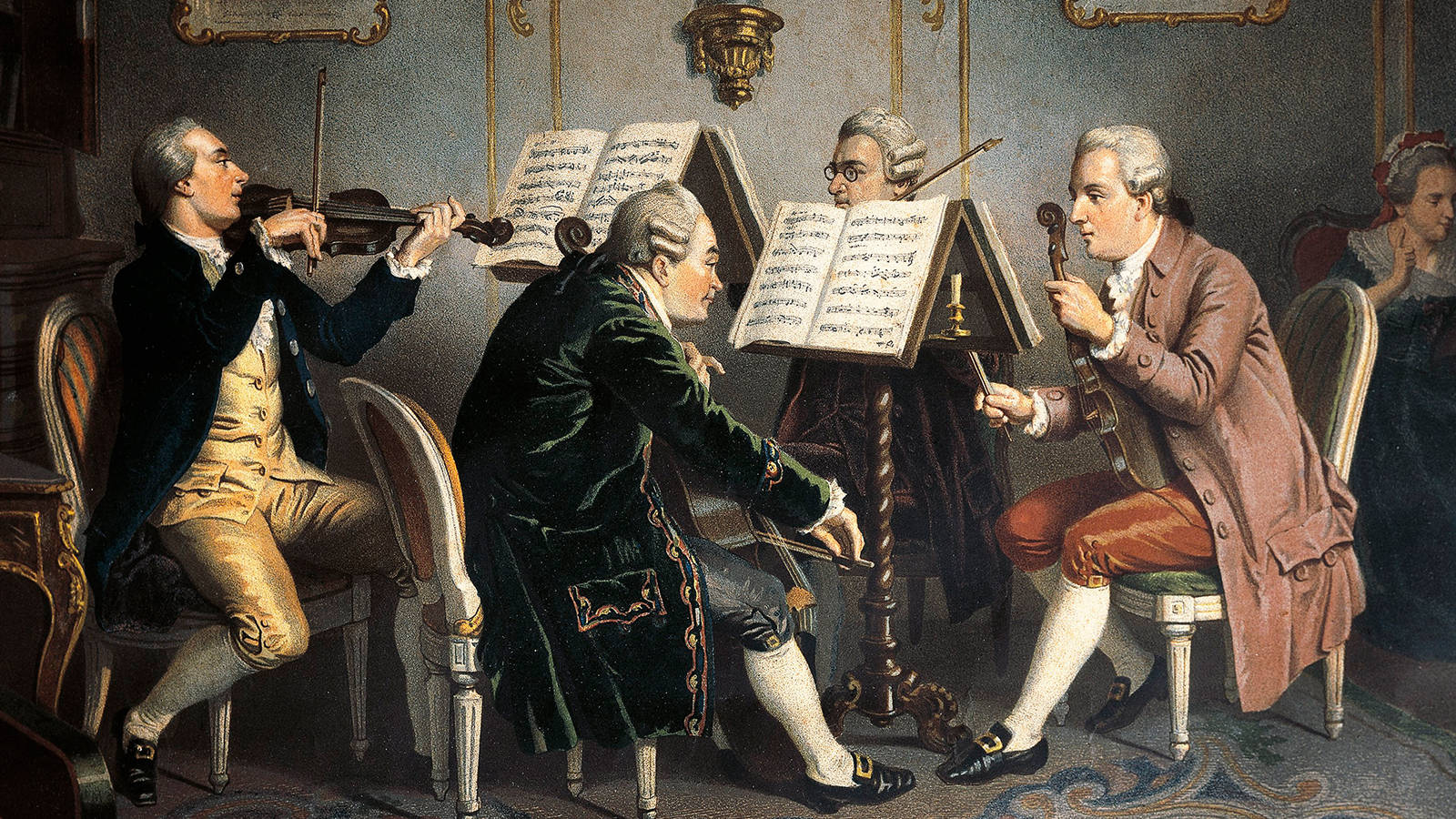A Timeless Journey Through Sound
Classical music, with its grandeur, complexity, and timeless beauty, stands as a testament to the depth of human creativity and expression. Spanning centuries and encompassing a vast array of styles and genres, classical music continues to captivate audiences around the world. In this blog, we embark on a journey through the rich tapestry of classical music, exploring its history, significance, and enduring relevance in today's world.

The Legacy of Classical Masters
At the heart of classical music lie the works of legendary composers whose genius has left an indelible mark on the cultural landscape. From the transcendent symphonies of Ludwig van Beethoven to the delicate piano sonatas of Frédéric Chopin, these masters of the classical era paved the way for generations of musicians to come. Their compositions, characterized by intricate melodies, lush harmonies, and profound emotional depth, continue to resonate with audiences of all ages, transcending the boundaries of time and space.
Exploring Different Periods
Classical music encompasses a diverse range of periods, each marked by distinct stylistic characteristics and cultural influences. The Baroque period, with its ornate melodies and elaborate ornamentation, gave rise to iconic works by composers such as Johann Sebastian Bach and George Frideric Handel. The Classical period, epitomized by the elegant simplicity and balance of composers like Wolfgang Amadeus Mozart and Joseph Haydn, laid the foundation for the symphonic forms that would dominate orchestral music for centuries to come. The Romantic period ushered in an era of heightened emotional expression, with composers like Franz Schubert and Pyotr Ilyich Tchaikovsky pushing the boundaries of musical storytelling and drama.
The Evolution of Instruments and Orchestration
One of the hallmarks of classical music is its intricate orchestration and virtuosic performances. Over the centuries, advancements in instrument-making and musical technique have expanded the possibilities of classical composition, allowing composers to explore new sonic landscapes and textures. From the majestic sound of the symphony orchestra to the intimate resonance of the solo piano, classical music offers a vast array of instrumental combinations and timbres that continue to inspire awe and wonder.
If you are interested in learning music check out our Music Lessons in Tulsa.
Classical Music in the Modern Age
While classical music may be rooted in tradition, its influence extends far beyond the concert hall. In today's digital age, classical music has found new avenues of expression and dissemination, reaching audiences through streaming platforms, social media, and virtual concerts. Moreover, contemporary composers continue to push the boundaries of classical music, incorporating elements of electronic music, jazz, and world music into their compositions. This spirit of innovation and experimentation ensures that classical music remains a vibrant and relevant art form in the 21st century.
The Transformative Power of Classical Music
Beyond its aesthetic beauty, classical music has the power to uplift the human spirit and transcend the limitations of language and culture. Whether it's the soaring melodies of a symphony or the haunting strains of a violin concerto, classical music has the ability to evoke a wide range of emotions and experiences, providing solace, inspiration, and catharsis to listeners around the world. Moreover, numerous studies have demonstrated the cognitive and emotional benefits of listening to classical music, including improved focus, reduced stress, and enhanced mood.
Classical music stands as a timeless testament to the boundless creativity and ingenuity of the human spirit. From the sublime beauty of its compositions to the virtuosity of its performers, classical music continues to inspire, uplift, and enrich the lives of millions of people worldwide. As we journey through the rich tapestry of classical music, let us embrace its transformative power and celebrate its enduring legacy as a cherished art form for generations to come.
Cultural Significance
Classical music holds a special place in cultural heritage, serving as a repository of human history, emotion, and imagination. It reflects the values, beliefs, and aspirations of different societies throughout the ages, offering insights into the human condition and the complexities of existence. Whether it's the majestic chorales of Johann Sebastian Bach's "St. Matthew Passion" or the ethereal beauty of Claude Debussy's "Clair de Lune," classical music provides a window into the cultural tapestry of civilizations past and present.
Educational Value
Beyond its artistic merits, classical music plays a crucial role in education, fostering intellectual curiosity, critical thinking, and aesthetic appreciation. Studying classical compositions helps develop listening skills, music theory knowledge, and historical awareness, providing students with a comprehensive understanding of musical traditions and innovations. Moreover, exposure to classical music can enhance academic performance in other areas, such as mathematics, language arts, and cognitive development, making it an invaluable tool for educators and learners alike.
Preservation of Tradition
Classical music also serves as a custodian of tradition, preserving and perpetuating centuries-old musical practices, techniques, and repertoire. Orchestras, opera houses, and chamber ensembles dedicated to performing classical works ensure that these masterpieces continue to be heard and appreciated by audiences around the world. Moreover, initiatives aimed at music education and outreach strive to cultivate a new generation of musicians and music lovers, ensuring the longevity of classical music for years to come.
Cross-Cultural Dialogue
Classical music transcends geographical and cultural boundaries, fostering dialogue and exchange between diverse communities and traditions. Through international festivals, competitions, and collaborations, classical musicians from different backgrounds come together to celebrate their shared passion for music, transcending linguistic, political, and ideological differences. This spirit of collaboration and cultural exchange enriches the global musical landscape, fostering understanding, empathy, and mutual respect among people of all nations and backgrounds.
In essence, classical music remains a vibrant and indispensable art form that continues to enrich our lives in myriad ways. Whether it's through its aesthetic beauty, educational value, cultural significance, or capacity for cross-cultural dialogue, classical music holds a unique place in the human experience, inviting us to embark on a timeless journey through sound and imagination.
If you like this check out our article: All About Freddie Hubbard
